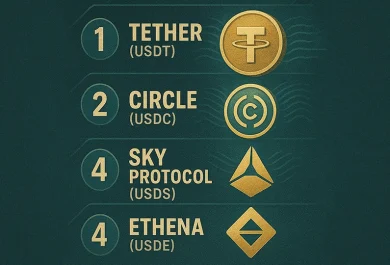Visa cardholders will be able to settle their card payments using stablecoins in the future. Payment card giant Visa expanded its service across the Central and Eastern Europe, Middle East, and Africa (CEMEA) region, in an attempt to enhance its stablecoins initiative. As such, Visa made a strategic partnership with Africa’s first licensed Stablecoin payments orchestrator, Yellow Card.
“Together with Visa, we’re building a bridge between traditional finance and the future of money movement. We look forward to continuing to innovate new solutions that can transform how money moves for even more secure, efficient, and transparent payment solutions,” said Chris Maurice, Co-Founder and CEO of Yellow Card.
Talking about the security of this new initiative, Justin Poiroux, Chief Technology Officer and co-founder of Yellow Card, stated that the AI Agent used for fraud detection in their system has been trained extensively in institutional AML (Anti-Money Laundering), KYT (Know Your Transaction), and fraud mitigation frameworks, which is equivalent to many years of human analysis experience.
Apart from that, the AI agent also addresses the code regression issue, which makes companies stray away from their policies and procedures. For companies to be compliant with their policies and procedures, the AI agent not only performs core detection tasks but also enforces quality assurance, ensuring that standards remain consistently upheld.
“In 2025, we believe that every institution that moves money will need a stablecoin strategy,” said Godfrey Sullivan, Visa’s SVP and head of product and solution for CEMEA.
So, what are the benefits of integrating stablecoins?
Operates around the clock:
Financial institutions have their working hours, and there is no one at the work station on a Sunday morning at 3 a.m. Businesses take weekends off, hence a payment would not go through, but with stablecoins, the transaction would go through instantaneously.
Lower cost:
International transaction wires eat into your margins with reconciliation, forex conversion, bank fees, and other hidden fees; however, on-chain transactions are comparatively cheaper.
Increased transparency:
When making a transaction via a traditional financial institution across borders, it is not possible to track the status of the transaction. However, on-chain transactions are visible and traceable in real time.










